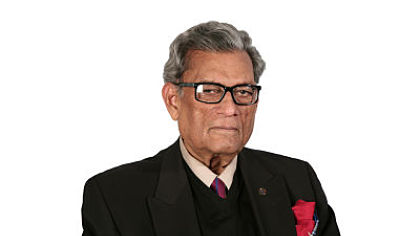Faculty

Marcel Fredericks, PhD
Title/s: Professor Emeritus
Specialty Area: Sociology of Health Care, Medical Sociology, Professionalization, Sociological Theory, Stratification, and the Family
Email: mfreder@luc.edu
CV Link: CV_Fredericks_Marcel
About
Dr. Marcel Fredericks is a Professor Emeritus in Loyola University's Sociology Department. He was Professor of Sociology at Loyola for 50 years and Director of the Office of Research in Medical Sociology in the Department of Sociology. He holds a Postdoctorate from Harvard University Medical School. During his postdoctoral years at Harvard, Dr. Fredericks was an NIH [National Institutes of Health] Fellow. He was also appointed Research Associate in Pediatrics at Harvard Medical School and Research Associate in Medicine at the Children's Hospital Medical Center, Boston, MA. Dr. Fredericks holds a PhD from Loyola University Chicago. He received his School Certificate from the University of Cambridge, England and matriculated from the University of London, England.
Dr. Fredericks' professional interests include: Sociology of Health Care, Medical Sociology, Professionalization, Sociological Theory, Stratification, and the Family. Dr. Fredericks developed the SCP [Society, Culture, and Personality] Model. It is a heuristic device which integrates various concepts and theories in order to deepen and clarify one's understanding of sociological phenomena. The model has been published and presented in the United States, Canada, Great Britain, Europe,and Central and South America.
Dr. Fredericks taught graduate courses in Medical Sociology and undergraduate courses in Sociology of Health Care, Sociological Perspective, Social Problems, and Sociology of the Family. With his associates, Dr. Fredericks created and developed two new sub-disciplines in the field of Medical Sociology—Cellular Sociology and Genetic Sociology.
Personalities act accordingly to the way they perceive themselves (the self concept) and according to the way they perceive the social situation. Social situations are all forces acting upon the individual at any given moment (environment) in time.
—Marcel Fredericks
Degrees
PhD, Loyola University
Post doctorate, Harvard University Medical School
Doctor Honoris Causa, Czestochowa University of Technology, Poland

